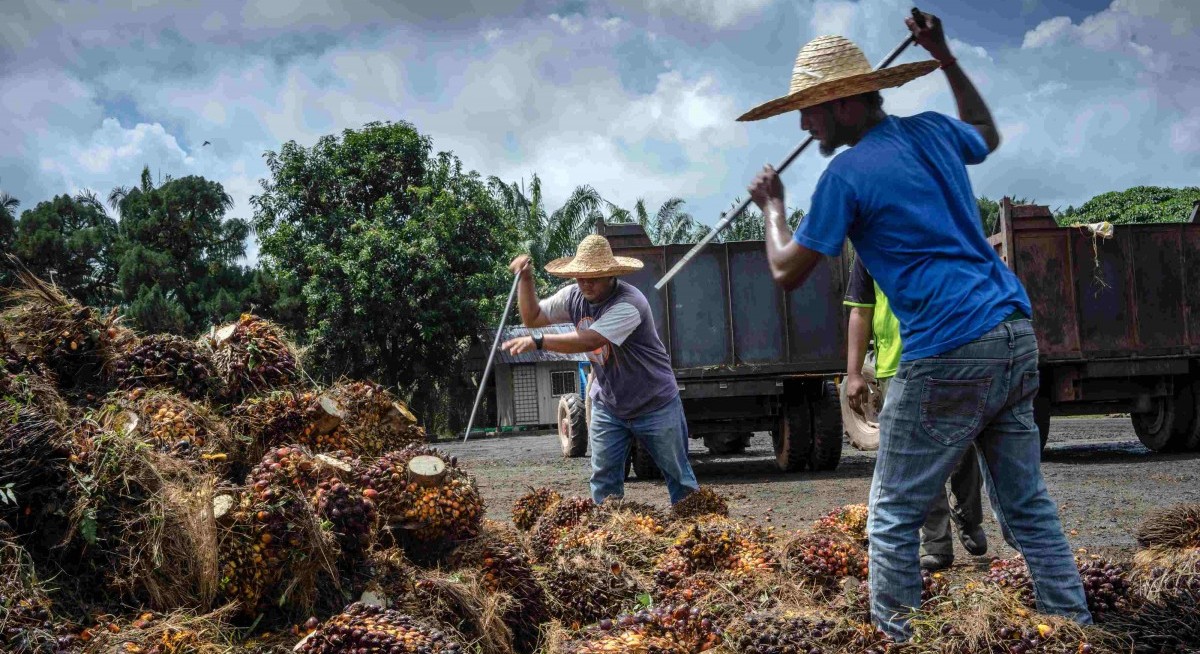More than half of the world’s GDP, or an estimated US$58 trillion ($74.7 trillion), depends on nature. With a growing emphasis on mitigating the impact of nature loss, understanding nature-related risks and opportunities is of critical importance.
In a first-of-its-kind initiative, DBS Bank, Oversea-Chinese Banking Corporation (OCBC) and United Overseas Bank (UOB) have joined forces with support from the Monetary Authority of Singapore to better understand how nature-related risks and dependencies can translate into credit risk.
In conjunction with the University of Cambridge Institute for Sustainability Leadership, the 41-page “Building capacity to identify and assess nature-related financial risks” report examines the palm oil industry as a pilot case study.
The global palm oil industry is worth about US$60 billion and is a major global sector. It is concentrated in Southeast Asia, primarily in Indonesia and Malaysia, which together account for over 85% of the world’s palm oil production.
Since 1960, the oscillation of weather patterns between the dryer, hotter El Niño and the wetter, cooler La Niña events has become more frequent and intense. This is one of the most important climate phenomena on Earth and has significant impacts in the region including drought, flooding and wildfires.
This has potentially serious implications for the agriculture sector and for palm oil companies in particular.
See also: HSBC opens asset management branch in United Arab Emirates
Researchers examined the impact of various hypothetical scenarios, ranging from mild to severe, on palm oil production. These included ecosystem degradation, water shortages, prolonged droughts and elevated temperatures.
The study, which began in January 2024, involved a nature dependency analysis across the loan portfolios of the three banks.
Released on June 26, the study shows how banks can build internal capacity to better understand nature-related risks and dependencies in their portfolios and minimise the risk of borrowers failing to repay their loans.
See also: Vietnam’s Standing Deputy Prime Minister visits UOB
Findings from a select sample of 16 clients showed that upstream players were generally more sensitive to the impact of nature-related risks as compared to integrated players.
Clients with relatively better financial strength were also more resilient to the shortterm acute risks.
Using the average production levels from 2020 to 2024 in Indonesia and Malaysia and applying a probable nature-related risk or stress event, the industry could see a production reduction of 20% in a mild nature loss scenario and 40% in a severe scenario, according to the study.
A reduction in supply and production volume could drive up prices by some 31% in the mild scenario and some 62% in the severe scenario, add the report’s authors.
Additionally, companies may need to bear higher production costs to cope with a challenged environment, with fertiliser costs likely to increase by 40% in either scenario.
The authors recognise that nature-related risk assessment is “still very nascent”. “While the scenario offers preliminary insights into potential impacts, it does not fully capture the complex interactions between climate and nature risks and the complexity of transmission mechanisms involved. If society continues to erode nature, impacting the nature-based services on which all businesses depend, considering those dependencies and risks will become increasingly important.”




